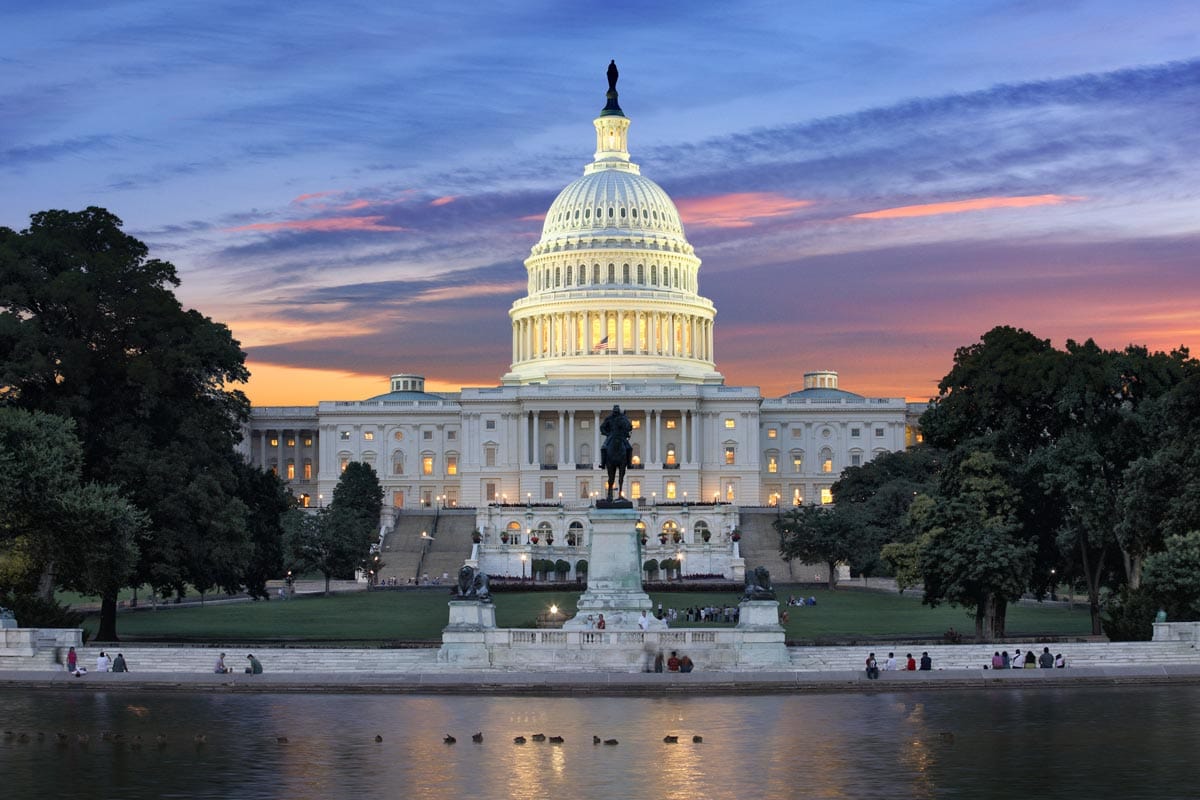Last week, lawmakers in the District of Columbia passed a bill that legalizes sports betting within its boundaries. The Sports Wagering Lottery Amendment Act of 2018 rewrites the D.C. books to permit both retail and online/mobile sports gambling. The D.C. sports betting bill is subject to Congressional review, as all things are, but an emergency measure also passed separately to allow for preparations in the interim. The signature of Mayor Muriel Bowser is now the only remaining roadblock and she is not expected to veto the bill.
The relevant bill (B 22-944) came up for its hearing with the sponsor presenting his proposal. “We’re venturing into new territory with sports gaming,” Councilmember Jack Evans said. “I’m very excited that the District will be out of the box if this passes today.” He reiterated his desire to beat surrounding states Virginia and Maryland into the market.
Proceedings in the chamber were complicated only slightly by the addition of three last-minute amendments, two of which did not appear critical to passage. One was only important to operators, though: a proposal to leave data requirements to regulatory rules rather than write them into the law’s language. The third amendment centered around the inclusion of disadvantaged and minority-owned businesses.
Although it passed, support for D.C. sports betting was not unanimous. Councilmember David Grasso provided the primary voice of opposition, citing concerns about problem gambling and mental health. However, in the end, the bill last-minute with overwhelming supports with a vote tally of 11-2. This moves the bill to the mayor for approval and the permanent bill will go to U.S. Congress for a 60-day review.
What DC sports betting?
D.C. sports betting will follow a lottery-operated framework similar to what other states have done such as Delaware. The existing agency is the District of Columbia Lottery and Charitable Games Control Board and it will simply be rebranded as the new Office of Lottery and Gaming, charged with regulating and administering the industry. In practice, though, D.C.’s system will look much different than any other state’s.
As passed, the bill authorizes both land-based and online/mobile sports betting, which is a solid starting point. D.C. will have a reasonable tax rate of 10 percent on revenue, which suggests an effort to foster a competitive marketplace which is important due to the proximity of Virginia and Maryland, two states also believed to be entering the market at some point. Ten percent is on the lower end of the scale among states with legal sports betting, particularly lottery-based states. The bill will not exclude betting on any particular sport or league, so other regulations determine those specifics. However, people like athletes and coaches, are not permitted to wager on their own league.
Mobile betting will primarily be offered through the lottery’s platform and powered by Intralot with a few exceptions.
The Play by Play
Especially when compared to of states and statehouses, the D.C. Council was able to get this accomplished very quickly. The idea of D.C. sports betting only first appeared publicly as of September when Evans indicated he would present his proposal to the city’s Council. Then things just took off and here we have the play by play of what a body of lawmakers can do when properly motivated.
– Sep. 18: Evans publishes a press release indicating he has filed the sports betting bill (B 22-944).
– Oct. 2: The sponsor then offers additional details, expressing openness to in-arena betting and integrity fees.
-Oct. 17: About 15 stakeholders testify during a public hearing in an effort to shape the final draft of the bill.
– Nov. 27: The night before the bill’s first committee hearing, Evans proposes amendments that include payment of an integrity fee to sports leagues in order to trade those fees for the use of official what other.
– Nov. 28: Nobody supports the proposal at all. The committee pushes back hard on the royalty fee, removing that section before advancing the bill to the full Council.
– Dec. 3: In what would have been an unthinkable union a few months ago, leagues and operators team up to lobby for a new “license fee” akin to the royalty/integrity fee. They make no provision for data usage in exchange.
– Dec. 3: That lobbying alliance unites to push back against a proposed single-operator model.
– Dec. 4: Evans’ bill advances through its first reading by a 10-2 vote. The single-operator model makes it.
– Dec. 18: The bill passes.
Obviously, it will never be this easy for a state considering size and population. And this is not to say that this bill is perfect and will not be amended as time goes by. However, it does show how much can be accomplished when a governing body acts as one. Legal sports gambling is here, it’s just a matter of time before every state opts in.
